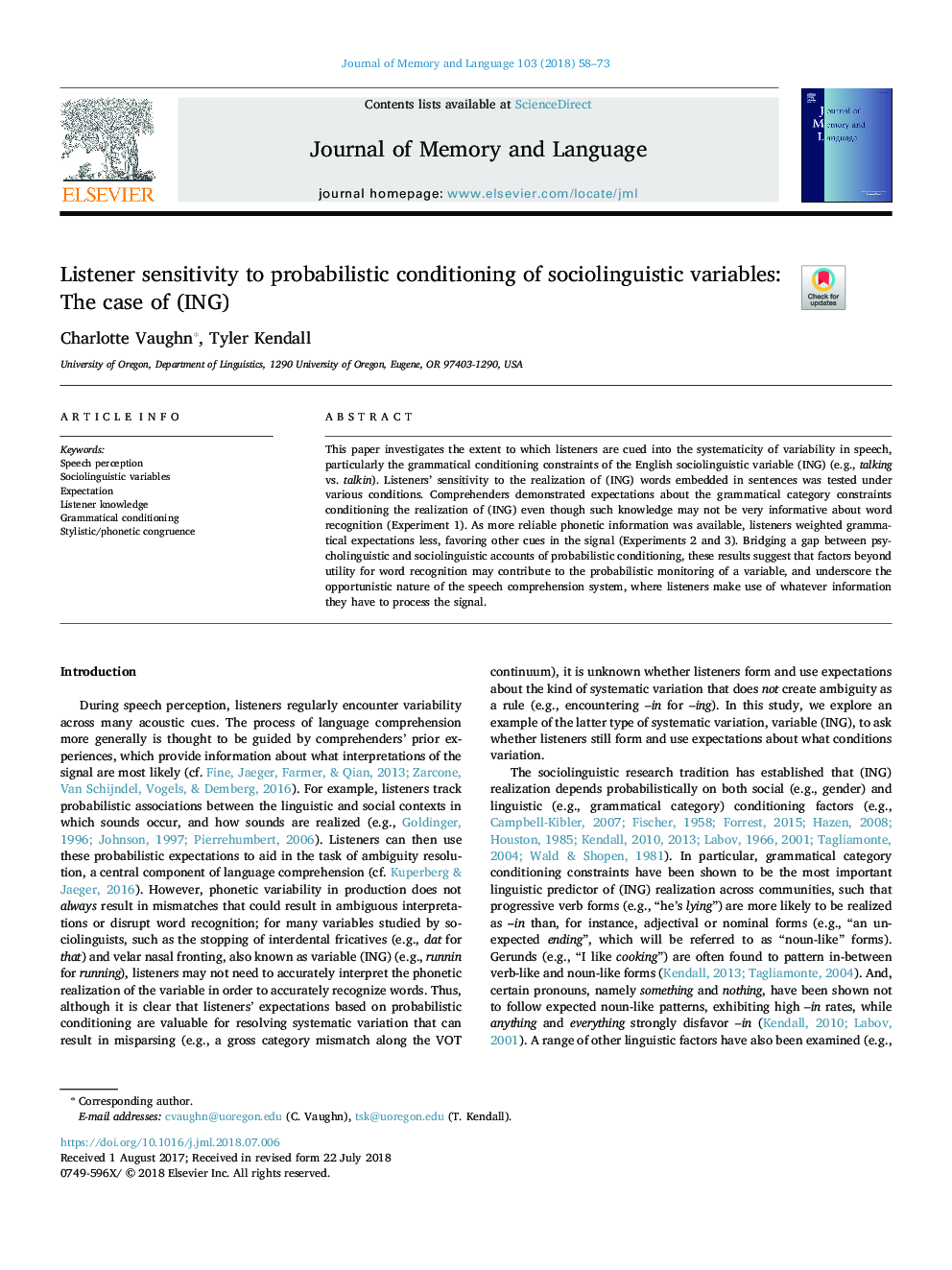| Article ID | Journal | Published Year | Pages | File Type |
|---|---|---|---|---|
| 7296750 | Journal of Memory and Language | 2018 | 16 Pages |
Abstract
This paper investigates the extent to which listeners are cued into the systematicity of variability in speech, particularly the grammatical conditioning constraints of the English sociolinguistic variable (ING) (e.g., talking vs. talkin). Listeners' sensitivity to the realization of (ING) words embedded in sentences was tested under various conditions. Comprehenders demonstrated expectations about the grammatical category constraints conditioning the realization of (ING) even though such knowledge may not be very informative about word recognition (Experiment 1). As more reliable phonetic information was available, listeners weighted grammatical expectations less, favoring other cues in the signal (Experiments 2 and 3). Bridging a gap between psycholinguistic and sociolinguistic accounts of probabilistic conditioning, these results suggest that factors beyond utility for word recognition may contribute to the probabilistic monitoring of a variable, and underscore the opportunistic nature of the speech comprehension system, where listeners make use of whatever information they have to process the signal.
Keywords
Related Topics
Life Sciences
Neuroscience
Cognitive Neuroscience
Authors
Charlotte Vaughn, Tyler Kendall,
